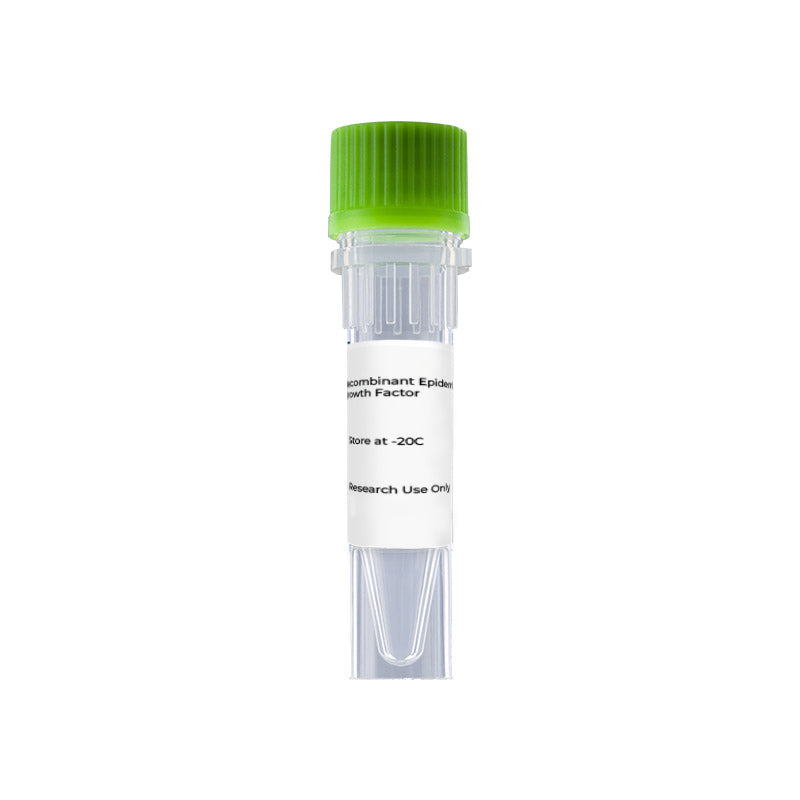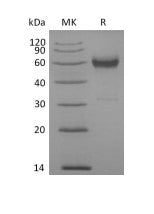1
/
of
2
Recombinant Cynomolgus 4-1BB (C-Fc)
Recombinant Cynomolgus 4-1BB (C-Fc)
Recombinant Cynomolgus 4-1BB ligand Receptor is produced by our Mammalian expression system and the target gene encoding Leu24-Gln186 is expressed with a Fc tag at the N-terminus.
Catalog No:
EPT062
Regular price
$329.00 USD
Regular price
Sale price
$329.00 USD
Unit price
/
per
Couldn't load pickup availability
Product Details
Accession
A9YYE7
Molecular Weight
44.4 KDa
Apparent Molecular Weight
60 KDa, reducing conditions
Purity
Greater than 95% as determined by reducing SDS-PAGE.
Endotoxin
Less than 0.1 ng/µg (1 EU/µg) as determined by LAL test.
Expression Host
Mammalian
Reconstitution
Always centrifuge tubes before opening.Do not mix by vortex or pipetting.
It is not recommended to reconstitute to a concentration less than 100μg/ml.
Dissolve the lyophilized protein in distilled water.
Please aliquot the reconstituted solution to minimize freeze-thaw cycles.
Shipping Condition
The product is shipped at ambient temperature. Upon receipt, store it immediately at the temperature listed in the Storage field.
Storage Condition and Shelf Life
Lyophilized protein should be stored at < -20°C, though stable at room temperature for 3 weeks.
Reconstituted protein solution can be stored at 4-7°C for 2-7 days.
Aliquots of reconstituted samples are stable at < -20°C for 3 months.
Background
Tumor necrosis factor receptor superfamily member 9(TNFRSF9), also known as CD137 and 4-1BB, is an inducible T cell surface protein belonging to the tumor necrosis factor receptor superfamily. It is a single-pass type I membrane protein which contains 4 TNFR-Cys repeats. The human and mouse proteins share 60% amino acid sequence identity. CD137 is expressed by mesenchymal cells, including endothelial cells, chondrocytes, and cells of the central nervous system. CD137 is also broadly expressed by cells of the human immune system, is broadly expressed by cells of the human immune system, including activated CD8+ and CD4+ T cells, activated natural killer (NK) cells, follicular dendritic cells (FDCs) and monocytes. CD137 has diverse roles in the immune response, the one key function is to promote the survival of both T cells and dendritic cells by binding the cognate ligand CD137L (4-1BBL).
Analyte
4-1BB
Regulatory Status
For Research Use Only



